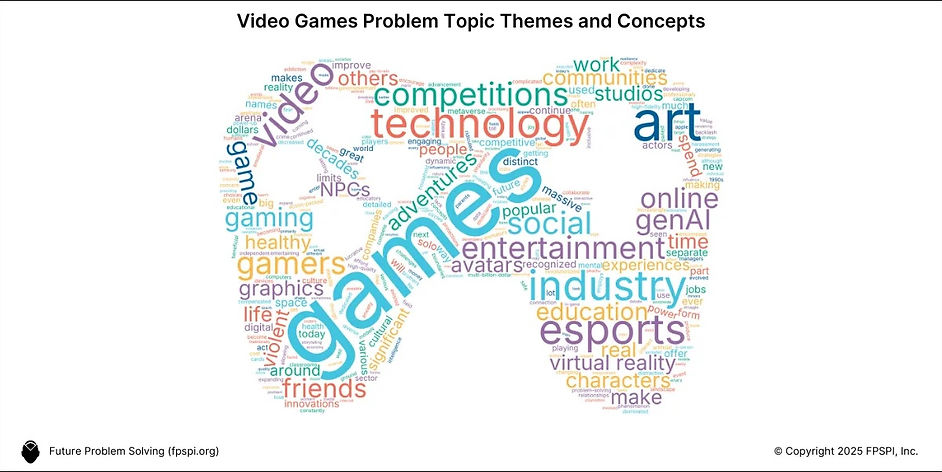
Qualifying Problem: Video Games
How might evolving gaming technology, laws, and consumer expectations impact the business of video games in the future?
Background
Video games are a popular form of entertainment and interactive media that have evolved into a multi-billion-dollar industry. They encompass various digital experiences, from action-packed adventures and strategy games to immersive simulations and educational tools. Video games are typically played on computers, gaming consoles, or mobile devices and involve players engaging with digital worlds, characters, and challenges.

Context
Video games offer diverse experiences, from competitive eSports competitions to solo adventures and social experiences where players collaborate or compete with others online. Video games have become a significant cultural phenomenon, with a global fan base and dedicated communities. They are even recognized as art forms. These games continue to push the boundaries of technology, storytelling, and creativity, influencing not only entertainment but also fields like education, cognitive science, and virtual reality.
Questions
-
What makes video games of all kinds so popular?
-
How do video games influence societies?
-
How will the rapidly expanding field of artificial intelligence shape video gaming of the future?
-
What will be the next frontier for video games look like?

Suggested Readings by Theme
Healthy gaming
The economy of gaming
Games and culture
What's next in gaming?
-
Want to know how to survive in space? Ask a tardigrade

Our Future Problem Solving topics represent important challenges from business, civics, society, science, and technology and serve as the thematic basis for given problem solving situations. Each year, students in grades 4-12 get to solve important near-future global issues and progress through local, regional, and international competitions. Through our programs, problem solvers learn how to think, not what to think, and gain skills they need to succeed in work and life. To learn more about Future Problem Solving visit fpspi.org.
